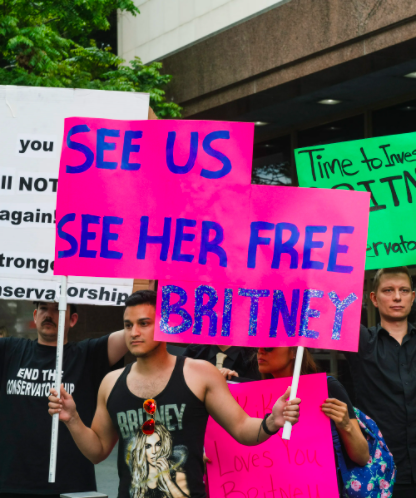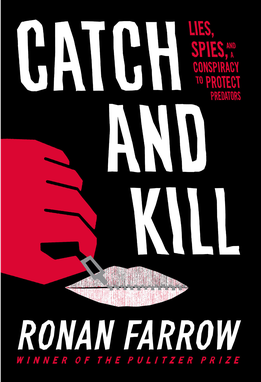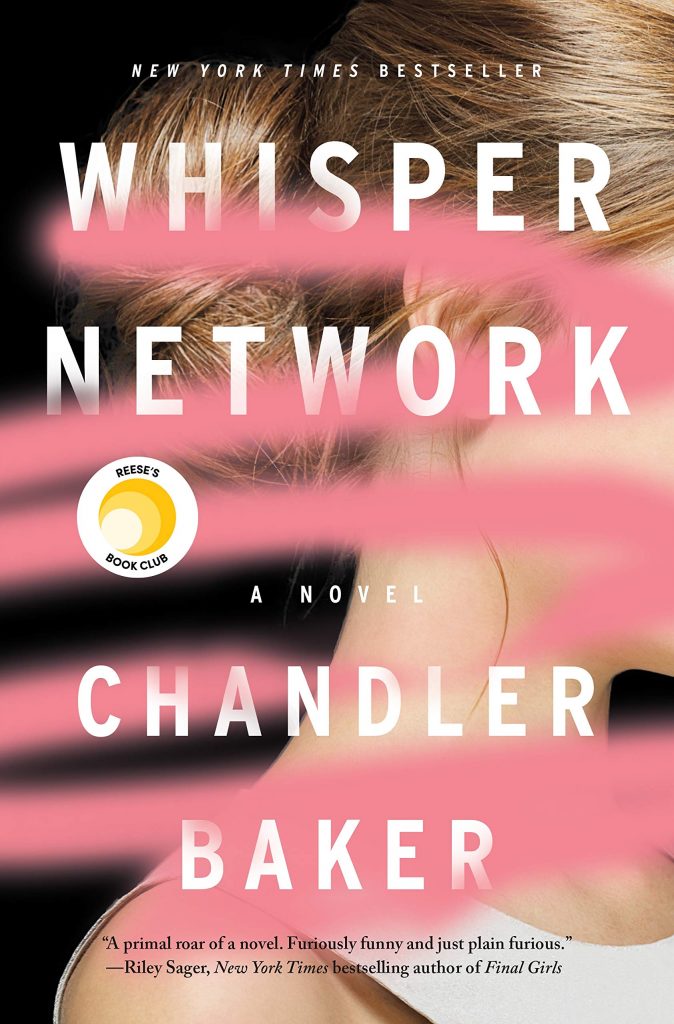
©Andrew Cullen, The New York Times
When I first started working on this post in January, the spin was a bit different. My jumping off points were the wild gossip mill stories that wrapped up 2020 and then launched 2021: the journalist who ruined her life for the much-despised (and imprisoned) pharma bro Martin Shkreli, the truly bizarre (and unfounded) rumours of Kanye West’s affair with makeup guru Jeffree Star, Hilaria Baldwin faking a Spanish accent for years, and the still-developing Armie Hammer cannibal stuff (please exercise caution when reading this story!). Throw in the political circus of an actual attempted coup on the US Capitol, and the headlines of 2021 seemed to be Mad Libs generated. The world is a glitching simulator, and we’re just living in it.
The truth about me is that I live for gossip and scandal—like Marie Kondo says, I love mess. But there is a threshold for scandalous entertainment. For example, the Caroline Calloway or Fyre Fest stories from 2019 were compelling in the way they revealed the blithe incompetence of wealthy influencers. Or the Tiger King circus from last year, which single-handedly saved our collective sanity at the beginning of quarantine. In these kinds of scandals, the people involved are dopes or straight up criminals; the stories are schadenfreude–inducing in the distribution of karma to terrible people. But scandals become not so fun when they affect innocent people (or animals, in the darker side of Tiger King). Once the Armie Hammer allegations started to veer beyond kink into potentially dangerous abuse, the story lost its giggly water-cooler gossip status. Instead, what emerged was a story of generational depravity hidden behind the veneer of Old Money, the case for which was made stronger by the publication of Surviving My Birthright by Casey Hammer, Armie’s aunt.
I officially decided to rewrite this post after watching the New York Times–produced Britney Spears documentary Framing Britney Spears, which, as its title suggests, adjusts the picture of the popstar’s mental health struggles as we’ve come to understand them. There’s been a lot of handwringing over who exactly is to blame for her descent in the mid-late 2000s, which famously culminated with a bald-headed Spears attacking a paparazzo’s car with an umbrella. Anyone who remembers 2007 will recall the Wild West days of paparazzi culture, which was demonized even then as harassment but which was allowed to continue because, well, money. While we may all have been somewhat complicit in this culture, just by virtue of living in it, I’d say some are more culpable than others. Paparazzi are the scum of society, no doubt, but tabloids like Us Weekly were the ones forking over millions of dollars for a single photo of Lindsay Lohan getting out of a car.
 So rather than focus on the sordid, I thought I should focus on the positive ways in which people are confronting, exposing, and contextualizing power and corruption in the media. To anyone as entrenched in the world of celebrity gossip as me, the Britney Spears conservatorship drama is not new. Fans of the singer have been trying for years to uncover the truth behind the legal decision that essentially incapacitates Spears from living a functional adult life. The #FreeBritney movement launched in earnest in January of 2019, after the singer’s much-hyped Las Vegas residency was canceled and her Instagram account went suspiciously silent. In yet another example of the internet giving the FBI a run for their money, a fan-run podcast called Britney’s Gram pieced together clues from the singer’s Instagram and from corroborated sources—including literal court documents—to uncover the extent of oppression that Spears faces under the conservatorship. Framing Britney Spears has renewed interest in this fan-led movement, which is why we’re seeing it all over social media again, this time much more in earnest.
So rather than focus on the sordid, I thought I should focus on the positive ways in which people are confronting, exposing, and contextualizing power and corruption in the media. To anyone as entrenched in the world of celebrity gossip as me, the Britney Spears conservatorship drama is not new. Fans of the singer have been trying for years to uncover the truth behind the legal decision that essentially incapacitates Spears from living a functional adult life. The #FreeBritney movement launched in earnest in January of 2019, after the singer’s much-hyped Las Vegas residency was canceled and her Instagram account went suspiciously silent. In yet another example of the internet giving the FBI a run for their money, a fan-run podcast called Britney’s Gram pieced together clues from the singer’s Instagram and from corroborated sources—including literal court documents—to uncover the extent of oppression that Spears faces under the conservatorship. Framing Britney Spears has renewed interest in this fan-led movement, which is why we’re seeing it all over social media again, this time much more in earnest.
Speaking truth to power is a concept we’re by now all familiar with, but each subsequent exposure of corruption is a reminder of the remaining uphill battle. In Ronan Farrow’s 2019 book Catch and Kill (2019 was really That Year), the high-profile journalist chronicles the winding, sometimes treacherous road to publishing his explosive New Yorker article that ended up winning him a Pulitzer Prize. If you’ll recall, this article—with the help of the New York Times and the inadvertent, zeitgeisty coining of “Me Too” by Tarana Burke—launched a movement against the concealment of sexual abuse and harassment, one that allowed countless women and men from across the globe to finally speak up in relative safety about their own experiences. #MeToo has become such an ingrained part of our cultural vocabulary that Farrow’s name is now shorthand for “you’re in trouble” (the dubiously trustworthy Instagram account @deuxmoi, for example, hinted at a big upcoming Armie Hammer scoop; internet sleuths immediately assumed (probably incorrectly) that Ronan Farrow was on the case). But before the New Yorker published the landmark piece, it belonged to NBC, who dumped it and then dumped Farrow when the boat started rocking too much for their liking (NBC denies any wrongdoing, claiming that Farrow didn’t have sufficient sources to run the story, but Farrow’s research partner Rich McHugh calls the killing of the Weinstein story “a massive breach of journalistic intergrity”).
 So people at the top like to squash unflattering stories. Water is wet. But each exposure strengthens the foundation of movements like #MeToo and #FreeBritney, giving voice to the masses in a sort of people’s revolt. In December of 2020, Warner Bros launched an investigation into beloved director Joss Whedon, after Ray Fisher (an actor in Whedon’s Justice League) accused him of misconduct on the set. Fisher’s claims were supported by Charisma Carpenter, aka Cordelia Chase from Buffy the Vampire Slayer and Angel. Carpenter’s mistreatment at the hands of Whedon was an open secret for years, but it was always part of the so-called “whisper network” (though, in Whedon’s case, the allegations are not always sexual in nature). Whedon was a hugely impactful public figure from the 1990s until now, with legions of fangirls and boys willing to turn a blind eye to his behaviour if it meant getting more content (I don’t mean that to sound disparaging; we are all guilty of this at some point). But now, following the reckoning of powerful men, Fisher’s and Carpenter’s stories are finally getting the traction they deserve.
So people at the top like to squash unflattering stories. Water is wet. But each exposure strengthens the foundation of movements like #MeToo and #FreeBritney, giving voice to the masses in a sort of people’s revolt. In December of 2020, Warner Bros launched an investigation into beloved director Joss Whedon, after Ray Fisher (an actor in Whedon’s Justice League) accused him of misconduct on the set. Fisher’s claims were supported by Charisma Carpenter, aka Cordelia Chase from Buffy the Vampire Slayer and Angel. Carpenter’s mistreatment at the hands of Whedon was an open secret for years, but it was always part of the so-called “whisper network” (though, in Whedon’s case, the allegations are not always sexual in nature). Whedon was a hugely impactful public figure from the 1990s until now, with legions of fangirls and boys willing to turn a blind eye to his behaviour if it meant getting more content (I don’t mean that to sound disparaging; we are all guilty of this at some point). But now, following the reckoning of powerful men, Fisher’s and Carpenter’s stories are finally getting the traction they deserve.
This post is getting too long—and truly, I could write about this all day—so I’ll just call attention to one more important piece of journalism that is currently airing on the podcast Reply All. In a series called The Test Kitchen, reporter Sruthi Pinnamaneni interviews former Bon Appetit employees regarding the magazine’s history of sidelining people of colour (the impetus for all this stems back to June of 2020, when Bon Ap superstar Alison Roman made headlines for acting up on Twitter—see Karen’s post “Cultural Appropriation in Food & Elsewhere” for more on that). It’s an eye-opening behind the scenes look at how difficult it is to get these big, mostly white, corporations to change course for new audiences, even when that corporation believes itself to be progressive. [EDIT: since writing this, a former Reply All colleague has revealed that the same dynamic exists at parent company Gimlet. Pot, kettle.]
Whew! Now that that’s all off my chest, I will wrap up by saying: we all owe Chris Crocker an apology. #FreeBritney!
Omg The Test Kitchen podcast. I hadn’t heard of that one (somehow slipped completely past my radar) but the transcript for that first episode made for some pretty brutal reading. Like… the events taking place in that podcast were not that long ago!
Also that whole Calloway saga is stuff you can’t make up – I knew about the Fyre Fest (reading it in a book about scams) but wow. I’d love to read through reviews of her workshops that cost $165 and served salad to participants sitting on the floor, dishing out empty mason jars and seeds.
The Test Kitchen series has imploded since I posted this lmao. Two major figures at the Reply All podcast stepped down and I don’t know if they’re going to release the rest of the episodes. Which is kind of annoying because I wanted to hear them regardless! Oh well.
I definitely watched the Fyre Fest documentary on Netflix with my jaw hanging open!! Wild. And I spent way too much time reading up on the Caroline Calloway thing when it was happening. It’s like a car wreck, as they say. Can’t look away! I don’t know if you read this essay (https://www.thecut.com/2019/09/the-story-of-caroline-calloway-and-her-ghostwriter-natalie.html) by her former friend but it’s juicy lol.